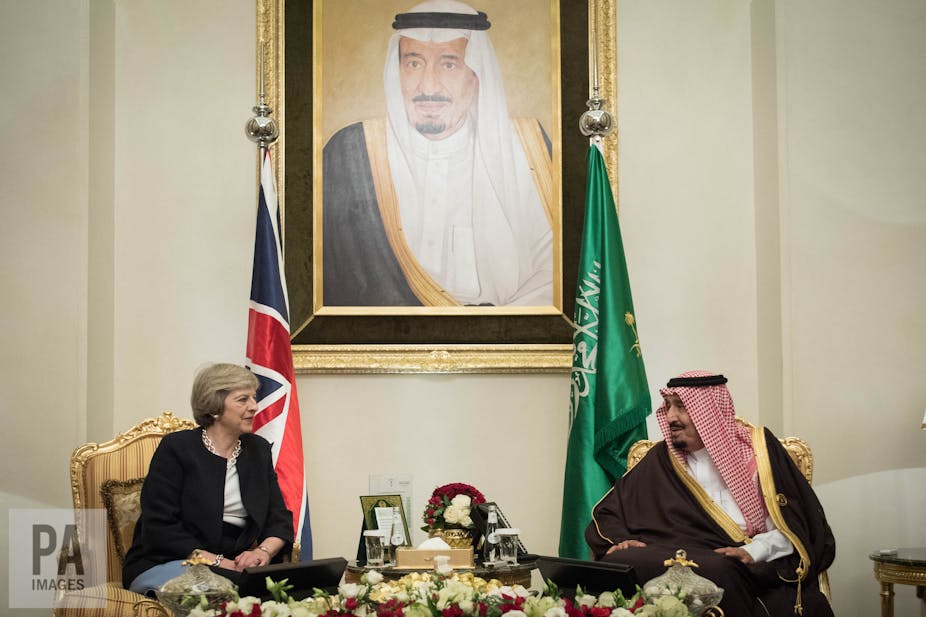Two anti-arms trade activists, Sam Walton and Dan Woodhouse, have been found not guilty of criminal damage after they were accused of breaking into the BAE Systems plant in Warton, Lancashire, with the intention of disarming warplanes bound for Saudi Arabia.
Their protest has strong echoes of a case in 1996, when four women broke into the same plant and used a hammer to damage a Hawk jet. Known as the “Ploughshares Four”, those women made legal history when they were acquitted despite having admitted criminal damage. The court accepted that their action was lawful because it prevented the greater crime of genocide by the regime of former Indonesian president Haji Mohamed Suharto against the people of East Timor, which was then under an illegal Indonesian occupation.
The trial of the Ploughshares Four put defence exports firmly on the political agenda. When Labour came to power in 1997, arms sales became a litmus test for the credibility of a so-called ethical foreign policy, spearheaded by Robin Cook. New Labour claimed that: “Britain is, again, leading by cleaning up the arms trade” – and government licences were to be denied where there was a clearly identifiable risk that proposed exports might be used for internal repression.
In practice, things proved far less clear-cut. Although the government eventually admitted that British-made weapons had been used to put down demonstrations in Indonesia, it never accepted that Hawk aircraft had been used in East Timor. Eyewitness accounts disseminated by Nobel Peace laureate José Ramos-Horta were not considered objective evidence.
There is no such ambiguity when it comes to today’s Saudi-led campaign in Yemen and, on that front, the current government has made its position perfectly plain.
Legitimate targets
In 2015, the then-foreign secretary, Philip Hammond, confirmed that British-made aircraft were being used in the Yemen conflict. For campaigners, this is shameful; like Indonesia under Suharto, Saudi Arabia has a poor human rights record and is one of the FCO’s human rights priority countries. Yet, as in the Indonesian case, the UK government nevertheless sees a strong defence relationship with the Saudis as vital to British interests. When giving evidence to the Defence Select Committee this week the defence secretary Michael Fallon indeed lamented that criticisms by MPs of Saudi Arabia’s human rights record was ‘not helpful’ in securing lucrative arms sales.
Arms sales to Saudi Arabia have galvanised protest for many years. Nevertheless, the admission by Fallon, that a “limited number” of British-made BL755 cluster bombs had been dropped on Yemen brought a new potency to those objections.
The bombs were old, manufactured in 1986 before they were outlawed by the 2008 Ottawa Convention. As the Blair government discovered there is a particular problem with equipment exported under previous administrations, for which governments try to avoid responsibility. Fallon further insisted that the bombs had been dropped against “legitimate military targets”, ignoring the objection that cluster bombs pose an indiscriminate risk to civilians long after they have been dropped, whatever the original target.

The Saudi-led coalition action in Yemen is quite different to the Indonesian occupation of East Timor. While the UK did not recognise Indonesia’s claim to sovereignty over East Timor, it accepts that Saudi Arabia’s intervention is in accordance with international law because Abdrabbuh Mansour Hadi, the legitimate president of Yemen, had requested it. To critics, however, this does not justify the extent of civilian casualties. The objection, therefore, is not primarily that British-made jets are being flown over Yemen, but that they are being used to violate international humanitarian law.
The question was the subject of a judicial review which sought to establish whether the UK government was obliged by law to halt export licences where there is “a clear risk that the arms might be used in the commission of a serious violation of International Humanitarian Law”. The contrast with the Ploughshares verdict could not be greater, but it is a matter of debate as to which verdict is perverse.
Litmus test
20 years on from the Ploughshares case, Britain is still very successful at selling arms abroad. In the latest figures published by the Department of Trade and Industry, the UK is said, to be the second largest global defence exporter on a rolling ten-year basis. But while the government continues to pursue its defence relationships with major arms buyers such as Saudi Arabia, the issue of British arms sales is at the heart of the debate over what values should drive Britain’s foreign policy.
At Labour’s 2017 conference, the shadow foreign secretary, Emily Thornberry evoked her predecessor Cook by calling for a UN-led investigation into alleged violations of international humanitarian law by the Saudi coalition and for a “radical revolution in values”. Not all Labour MPs are on board – but nor were they in Cook’s day.
The ethics of foreign policy are far from simple, but the imperative to clarify them isn’t going away. As the current foreign secretary, Boris Johnson, recently told parliament:
It is because the world looks to Britain, and it is because the work of the UK overseas is so vital for global security and stability, that it is absolutely vital that we resist the temptation to run down our defences and abrogate our responsibilities to our friends and partners around the world.
Most are unlikely to disagree with that statement. But arms sales are still a key indicator of the ethical health of British foreign policy – and the question is whether arming a friendly state like Saudi Arabia counts as “responsible”. The implication of today’s verdict at Burnley Crown Court is that it is not.


